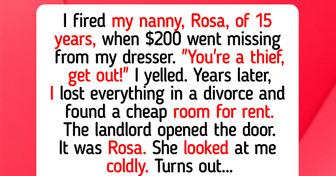I think, I can never earn over which I paid by my precedent employer, but I was wrong, world is so large to try their fate. but now I am making $52/h even more, and easily earn minimum $1300/week, on the experience everyone must try to do work online, easy way to earn, here's an example.
𝐰𝐰𝐰.Richnow1
14 Proven Real-Life Tips to Rock Your Job Interview
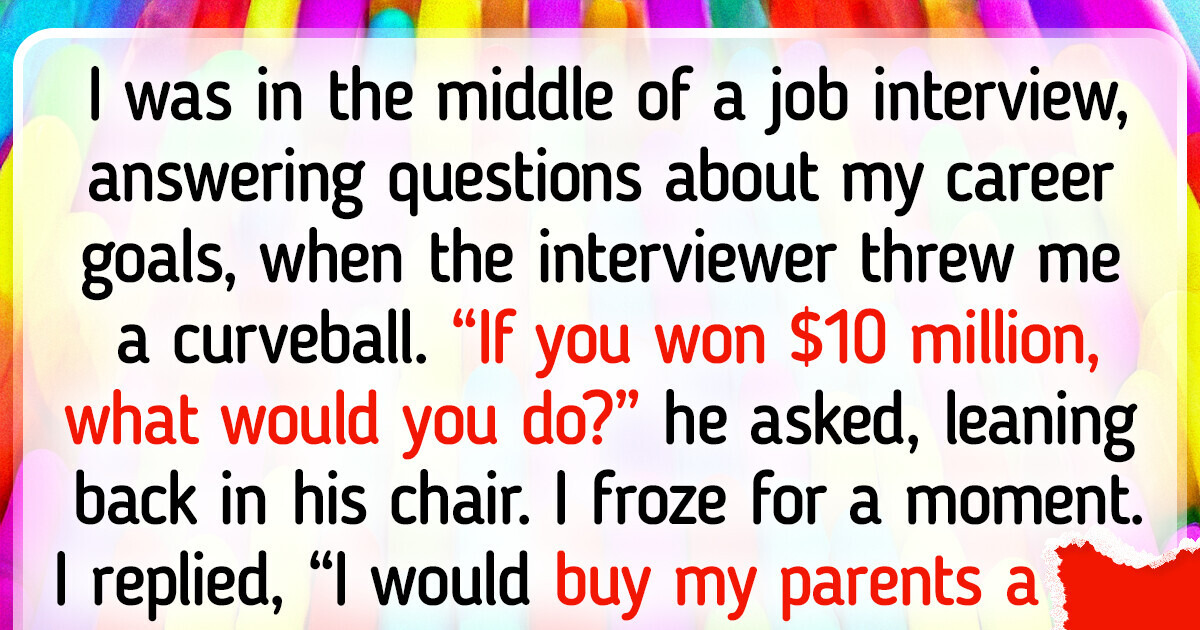
A lot of people feel nervous in interviews because landing a good job with a decent salary isn’t easy. On top of that, employers can be very selective and may try different methods to understand what kind of person they’re talking to. But don’t worry, Bright Side has got you covered.
1.

I was in the middle of a job interview, answering questions about my career goals, when the interviewer threw me a curveball. “If you won $10 million, what would you do?” he asked, leaning back in his chair. I froze for a moment.
Caught off guard, I replied, “I would buy my parents a house to thank them for everything they’ve done for me, and I’d invest the rest to ensure financial security for the future.” He nodded, his face unreadable.
At the end of the interview, he smiled and said, “You’re hired.” Apparently, they’d had issues with previous employees who lacked long-term thinking. My answer showed him that I’d fit right into their team.
2.
My husband was quizzing me as I prepared for my big interview. “What will you say if they ask when you can start working?” he asked. I quickly replied, “I’ll tell them, I can start as soon as possible!”
He frowned and shook his head, “Bad idea. You should say two weeks. It shows that you’re loyal to your current team and not someone who just leaves them hanging.”
3.
My friend Sarah was preparing for her interview when she said, “I’ll tell them I expect $60,000.”
I told her, “Don’t give a number right away! Let them throw a figure first. It gives you more room to negotiate.”
4.
A couple of years ago, I was asked in an interview, “What’s your greatest weakness?” I froze. I was about to say, “I’m a perfectionist,” but I remembered my friend’s advice: “That’s a cliché! Be honest, but don’t use something that sounds like you’re covering up a strength.”
So, I shared that I tend to get overly involved in projects because I care a lot about quality. But, I also mentioned how I’ve been learning to delegate more and trust my team, which showed my growth.
5.
One time, they asked me what my greatest professional achievement was. I started talking about a big project I led, but then I realized I hadn’t connected it back to the job I was applying for.
My friend later told me, “Make sure your achievements align with the company’s needs. Show them how what you’ve done will benefit them.” So, the next time I got that question, I connected my success story to the company’s goals, which really helped me stand out.
6.
In my last interview, they asked how I handle stress. I confidently said, “I stay calm and solve the problem.” But a mentor pointed out, “You need to give a real-life example. They want to see you in action, not just hear generic answers.”
So, in the next interview, when they asked about pressure, I told them about a time I worked on a tough project with a team and how we pulled together to get it done. It was a much more convincing answer.
7.
I once had an interview where they asked about my salary expectations, and in a panic, I blurted out, “I’ll take whatever you offer!” The recruiter stared at me like I just suggested we work for free.
I quickly added, “Uhm, just kidding... let’s talk numbers.” Afterward, my friend said, “Next time, don’t sound like you’re desperate for free pizza.”
8.
When they asked why I left my last job, I said, “Because my boss was a... uh, let’s say, ‘challenging’ character.” The recruiter blinked and then said, “Interesting... What do you mean by ‘challenging’?”
I quickly said, “I was looking for a better fit, where I could grow more.” My friend later said, “Keep it professional. No one wants to hear about your ’challenging’ boss.”
9.
In one interview, they asked how I handle pressure, and I said, “I stay calm and focused.” But I realized that wasn’t enough.
I needed to give an example! My friend told me, “Talk about a time when you met a tough deadline or solved a difficult problem under pressure.”
10.
Interviewers love to know how you prioritize tasks. Instead of just saying, “I make a to-do list,” explain the process you follow.
You might say, “I start by identifying urgent tasks and breaking larger projects into smaller, more manageable steps. This way, I can stay focused and meet deadlines.” They’ll appreciate hearing a clear, practical approach.
11.
Be careful not to sound too specific. For example, don’t say, “I need a quiet office with no distractions.” Instead, try something like, “I work best in an environment where collaboration and open communication are encouraged, but I also enjoy having space to focus when necessary.”
This shows you’re flexible but also know how you work best.
12.
If they ask how you handle conflict, they want to know if you can stay calm and professional in tense situations.
A good answer might be, “When conflicts arise, I stay calm, listen to all sides of the situation, and try to find a solution that works for everyone. I think open communication is key to resolving issues effectively.”
13.
Before any interview, do some research on the company. You don’t need to know everything, but being able to mention recent projects, their mission, or their company culture shows you’ve done your homework.
For example, “I’ve read about your recent initiative to expand into new markets, and I’m really excited about how my skills could contribute to that growth.”
14.
When they ask how you handle criticism, it’s important to show that you can accept feedback and grow from it. A good answer could be, “I see criticism as an opportunity to improve. I take the time to understand the feedback, and I’m always open to adjusting my approach to do better next time.”
Questions you might have.
- How do you answer tricky interview questions?
When you get a tricky question, just take a deep breath and don’t panic. It’s okay to take a moment to think. Try to stay honest and give a well-thought-out answer. If you’re unsure, it’s totally fine to say, “That’s a great question, let me think for a moment.” - What are the hardest interview questions to answer?
Some tough questions are like “What’s your greatest weakness?” or “Why did you leave your last job?” These can feel uncomfortable, but a good way to answer is by being honest and focusing on what you’ve learned from those experiences. - How can I impress my interviewer?
To impress your interviewer, be confident but not cocky. Show them you’ve done your research on the company and the role. Also, give examples of your past experiences that show you can handle the job well. Being polite and asking thoughtful questions can also go a long way. - What are some unique questions asked in job interviews?
Sometimes, interviewers ask weird questions like “If you were an animal, what would you be?” or “How would you solve X problem with no resources?” These questions are meant to test your creativity or problem-solving skills, so just think on your feet and give a creative answer. - How do you stay calm during an interview?
Staying calm is all about preparation and mindset. Before the interview, practice answers to common questions, so you’re not caught off guard. Try to remind yourself that interviews are just conversations. And remember, the interviewer is not trying to trick you—they just want to know if you’re a good fit.
- What are common mistakes made in job interviews?
A common mistake is talking too much or too little. You want to keep your answers focused and relevant. Also, not asking any questions at the end can make you seem uninterested. And don’t forget to avoid speaking negatively about previous employers. - How do I prepare for behavioral interview questions?
For behavioral questions, use the STAR method: Situation, Task, Action, and Result. Think about past experiences where you demonstrated the skills they’re asking for, and structure your answers like a story. It helps keep things clear and relevant. - What questions should I ask at the end of an interview?
At the end, ask about the team you’ll be working with, what success looks like in the role, or the company’s culture. It shows that you’re thinking about how you fit into the bigger picture. - How can I improve my interview skills?
To improve your skills, practice! Do mock interviews with friends or in front of a mirror. Listen to feedback, and work on your confidence. Also, don’t forget to prepare for both common and role-specific questions. - What are red flags in job interviews?
Red flags can be things like the interviewer being vague about the role or the company’s culture, or if they seem disorganized. If the interviewer is late or doesn’t seem interested in your responses, that could be a sign that the company isn’t a great fit. Trust your gut.
Before you leave, make sure to check out another article where 12 people open up about the hilarious and surprising things happening at their jobs. From funny mishaps to unexpected moments, you won’t be able to stop laughing at some of the stories they share.
Comments
Related Reads
12 Stories Where One Plot Twist Changes Everything
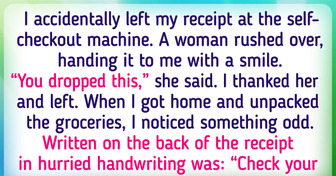
16 Moments That Show Kindness Is the Quiet Courage the World Needs
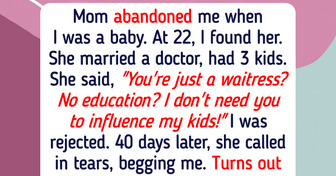
I Refused to Knit My Coworker a Free Blanket, and Now HR Is Involved
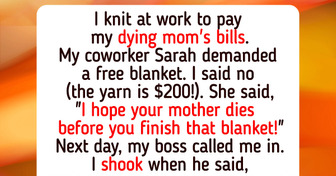
13 Stories of Quiet Kindness That Show Superhuman Strength in Ordinary People

20+ Stories That Prove Having a Supportive Family Is the Best Safety Net in the World
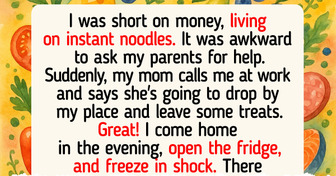
I Trained the New Hire Who Took My Promotion—My Revenge Was Calculated
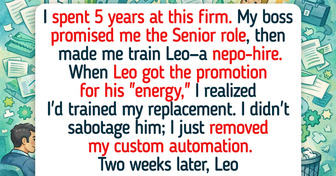
10 Stories That Prove Kindness Is the Backbone of Humanity
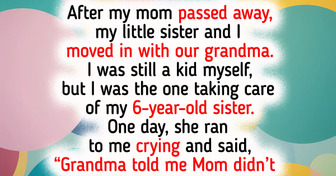
I Refuse to Cook Vegan Meals for My Stepson—And It Turned Into a Nightmare
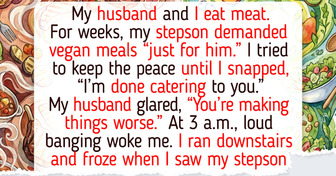
15 Stories That Remind Us the Beauty of Everyday Kindness
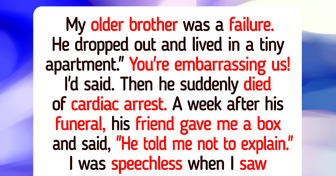
16 Moments That Show Kindness and Empathy Stay Warm in a Cold World
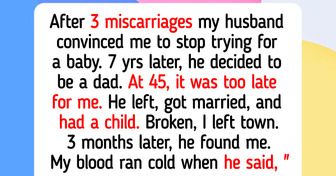
13 Teachers Who Didn’t Just Teach a Subject, They Rescued a Soul
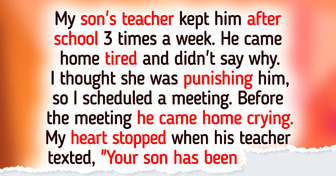
12 Moments That Remind Us to Stay Kind Even When Life Isn’t Gentle
